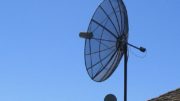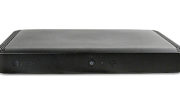Yesterday, AT&T Sports Networks, the organization that manages Root Sports, announced that DIRECTV and DIRECTV Stream users will be able to watch Portland Trail Blazers and Seattle Kraken games on Root Sports.
Because of course they can
It took some back end negotiating, apparently, because previously those teams were attached to the now-defunct NBC Sports Northwest. But was there really any doubt here? Despite no longer having operation control of DIRECTV, AT&T is still its majority owner, and in my mind it was a foregone conclusion that everyone would play nice before the teams started playing.
It was really just fake drama
Hey, you know, I get it. I’ve been running this blog a while and sometimes you just want to goose your readership numbers a little bit. But I’ll take others in the blogosphere to task for trying to create drama where there wasn’t one. There have been cases in the past where carriage agreements weren’t signed in time and there were channel blackouts. But here we weren’t talking about blacking out a channel, just some games on a channel. I never for a moment thought that was going to happen. And guess what, it didn’t.
The RSN problem
The real problem, though, is the proliferation of regional sports networks throughout the last decade or so. Back in the 20th century, most major league sports were televised on local stations. Sometimes they were blacked out for arcane reasons [Baseball, I’m looking at you here] but for the most part if you wanted to watch a game, you turned to local TV.
As the century ground to a close, we started to see regional sports networks pop up. At first they were less important, offering color commentary and additional programming. Sometimes they shared broadcast duties with local stations. But, increasingly, these cable channels started outbidding local broadcasters for games, and that meant in order to watch sports you needed cable or satellite.
Since that situation wasn’t bad enough for well-meaning sports fans, we started to see multiple sports networks in major cities. New York led with MSG and YES, and probably the pinnacle of it all is Los Angeles, where you need 3-4 different RSNs to get the sports that you might consider local. (Southern California’s a big region and there isn’t a strong consensus as to what’s considered “local” there.)
With so many sports channels out there, beleaguered pay TV companies had no choice but to become pickier and pickier as to what they carried. Again looking to Los Angeles, the Dodgers couldn’t be seen on any cablesystem except Spectrum for years. When an agreement was finally reached, the Dodgers were hot but their longtime sportscaster Vin Scully had already retired.
The solution
Folks, the one thing that’s always bothered me about major league sports is that cities and regular people bear a lot of the cost of supporting a team. It’s not just police and fire protection and it’s not just the increased load on roads and passenger trains. Often times cities will cut sweetheart deals with team owners to keep a team local. This could be in the form of tax breaks or just outright cash payments.
That’s all fine except then, the people of that city should have the right to see those games on TV for free. And, for the most part, that never happens. It seems like a bad deal for everyone and it’s something that I really think needs to be fixed. No, it’s not the most important thing in the world but when I sit down to watch a game on a weekend, it’s always on my mind.





